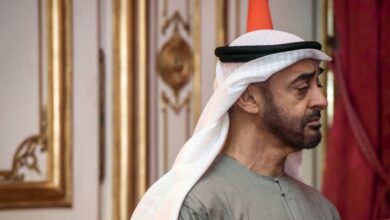UAE-Linked Journalist Arrested in Gaza for Allegedly Leaking Footage to Israeli Intelligence

Gaza City – A journalist affiliated with Al Arabiya, the UAE-based satellite news channel, has been arrested in Gaza on charges of sending footage of dead bodies to Israeli intelligence, according to local officials.
The footage is believed to have aided in the rapid identification of key individuals following Israeli airstrikes, raising serious concerns over the misuse of journalistic access to gather and transmit sensitive data.
While the journalist’s identity has not been disclosed, authorities say he is connected to the Abu Dhabi-based media network and was found distributing unapproved visual content during coverage of recent strikes.
“This goes beyond journalism — it’s unauthorised data collection for foreign actors,” a Gaza media official said.
Suspicion Falls on UAE-Israel Cooperation
The arrest comes amid growing fears of a covert intelligence-sharing arrangement between the United Arab Emirates and Israel, particularly involving UAE-based media outlets operating in or near conflict zones.
Since the Abraham Accords were signed in 2020, the UAE has expanded its diplomatic and security ties with Israel. Analysts now warn that this alliance may extend to information gathering operations disguised as journalism.
Media as an Intelligence Tool
Footage sent to external platforms — particularly involving images of the deceased — can be used by Israeli systems for facial recognition, target confirmation, and operational follow-ups. Officials in Gaza view such practices as a threat to civilian privacy and post-strike security.
This case has highlighted the growing role of Gulf media platforms in sensitive regions, particularly those perceived to operate under state influence or coordination. Al Arabiya and other UAE-funded outlets have faced similar allegations in other Middle Eastern conflicts.
“The concern is not just the content, but where it’s going and how it’s being used,” said a regional media analyst. “When journalists act as conduits for intelligence, the line between reporting and spying is erased.”
Broader Implications
Gaza’s media monitoring authorities have announced that they will be tightening restrictions on foreign-affiliated journalists, particularly those linked to governments with known intelligence cooperation with Israel.
This case raises urgent questions about the weaponisation of media access, the vulnerability of war-torn regions to foreign data extraction, and the ethical boundaries of journalism in times of war.
“In today’s surveillance age, the camera is no longer neutral,” one regional observer commented. “It can be as dangerous as a weapon when wielded in the service of intelligence.”




